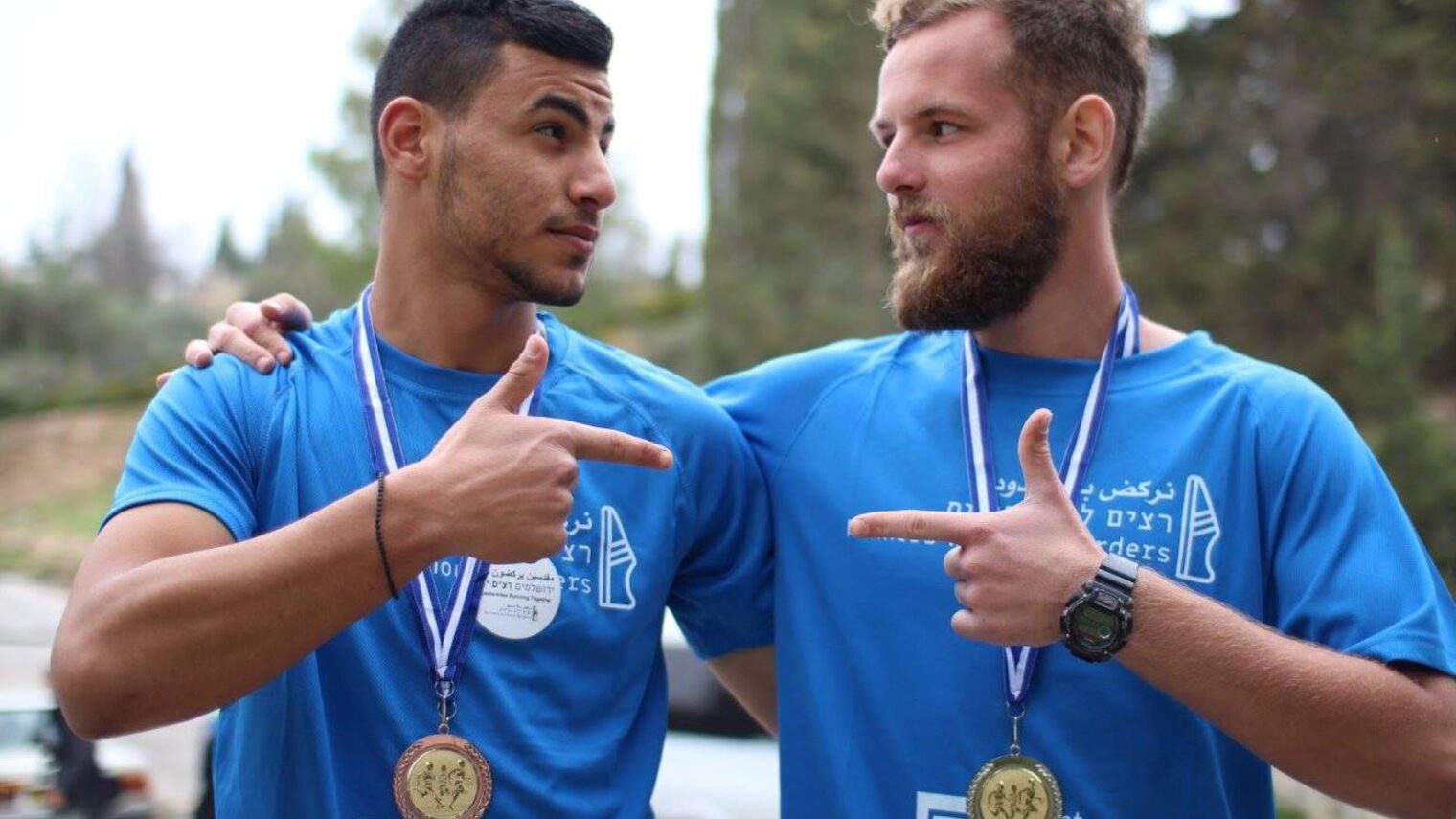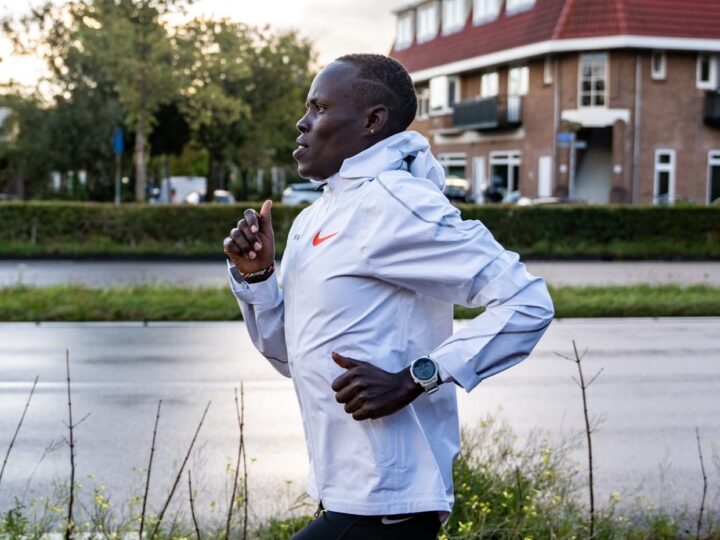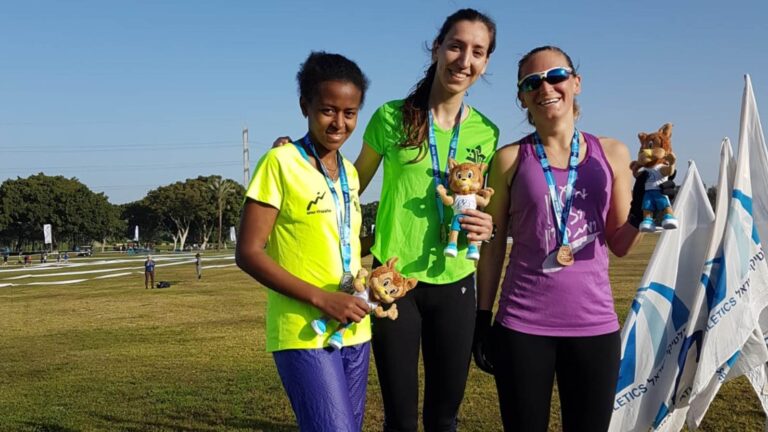Philip, like many of the teens involved in Arab and Jewish Jerusalem running group Runners Without Borders, doesn’t know enough Arabic to converse with his counterparts from Arab neighborhoods. But as a recent Russian immigrant, he barely speaks Hebrew either.
While running through Jerusalem’s Liberty Bell and Mesila parks for training once a week, Philip nevertheless has made friends.
“He found common ground with both sides, communicating with signals and a few words as they run together,” says Israel Haas, cofounder of RWB, which encourages Jewish and Arab residents of the city to meet, interact and cooperate through athletics.
Haas recalls that when some of RWB’s youth runners participated in the London Marathon in April 2017, Philip spent his free time in the city’s Arab Quarter with his friends from East Jerusalem.
RWB was formed in November 2014 in response to a tense year punctuated by racial violence and war. Haas was organizing a mixed boys running group and Shoshana Ben-David was separately organizing a mixed girls running group.
“We did not know each other and we were connected by some friends,” Haas explains. “We decided to join forces and establish an NGO.” They engaged a Jewish coordinator and an Arab coordinator in addition to professional running coaches.
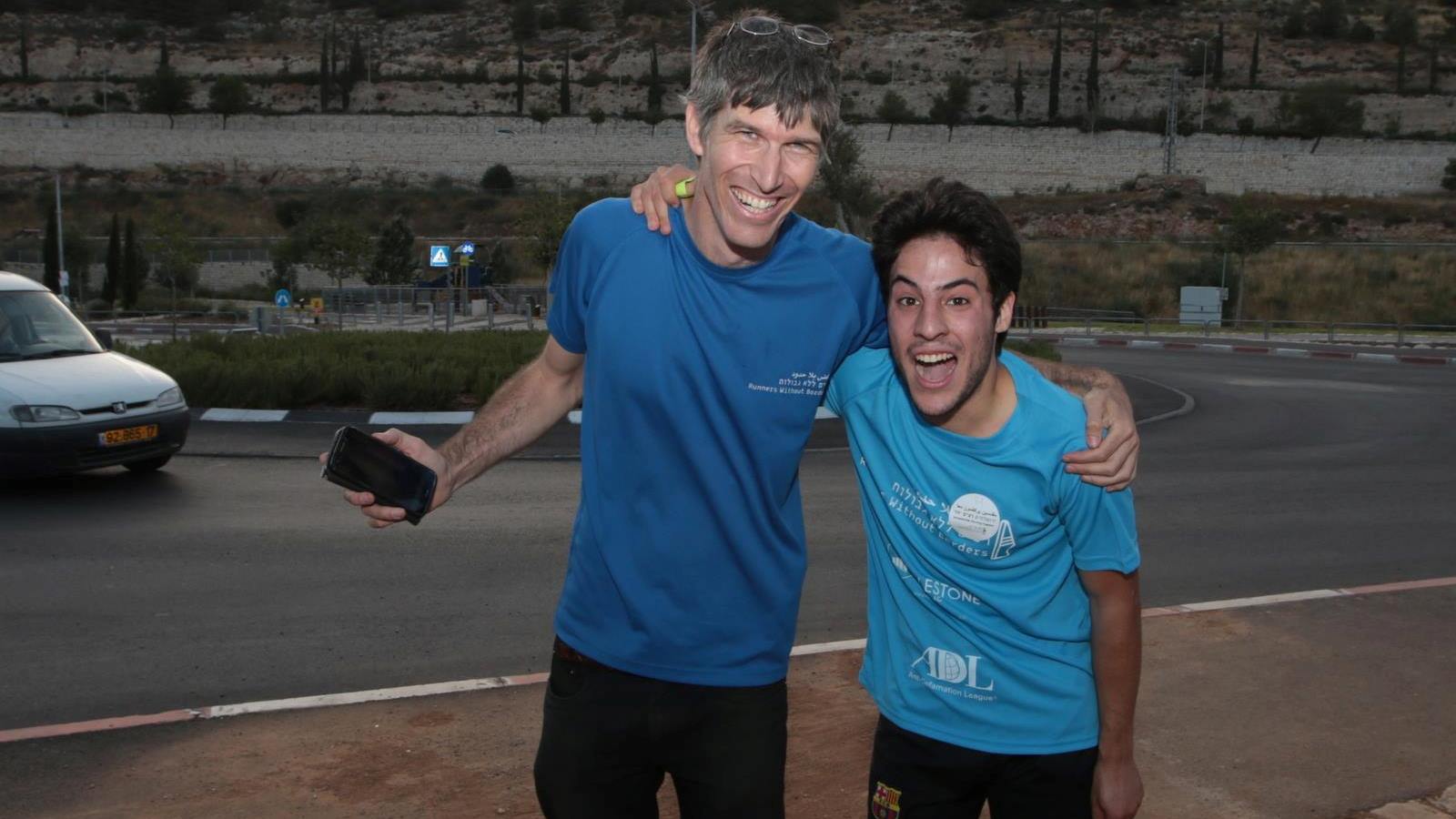
From the very beginning, Haas felt that typical Arab-Jewish coexistence efforts based on the Western emphasis on dialogue don’t take into account the Middle Eastern mindset and are therefore of limited value.
“When you want to bridge between two sides you can’t use the tools of one side and not the other. That’s why Shoshana and I chose sports, and specifically running, because we both are runners and we know it’s a very easy platform. In football or basketball you need to communicate in a common language but in running you just run together and everybody is equal.”
Since participants are a self-selecting group eager to interact, Haas has not witnessed any problems between the two populations, many of whom live on the remote edges of the city in low socioeconomic conditions.
“We try to avoid politics as much as we can. The message we try to convey is one of just wanting to break down the barriers and let people get to know each other,” says Haas.
Some RWB runners feel this is best accomplished by learning one another’s language.
“Walid from the Arab neighborhood of Ras el-Amud joined us at age 15 and started learning Hebrew seriously and practiced by conversing while training. Now, at 18, he speaks Hebrew very well and insists on talking on the phone in Hebrew with Jewish participants and the Jewish coordinator,” says Haas. “And he’s not the only one. We also see Jewish participants taking Arabic courses.”
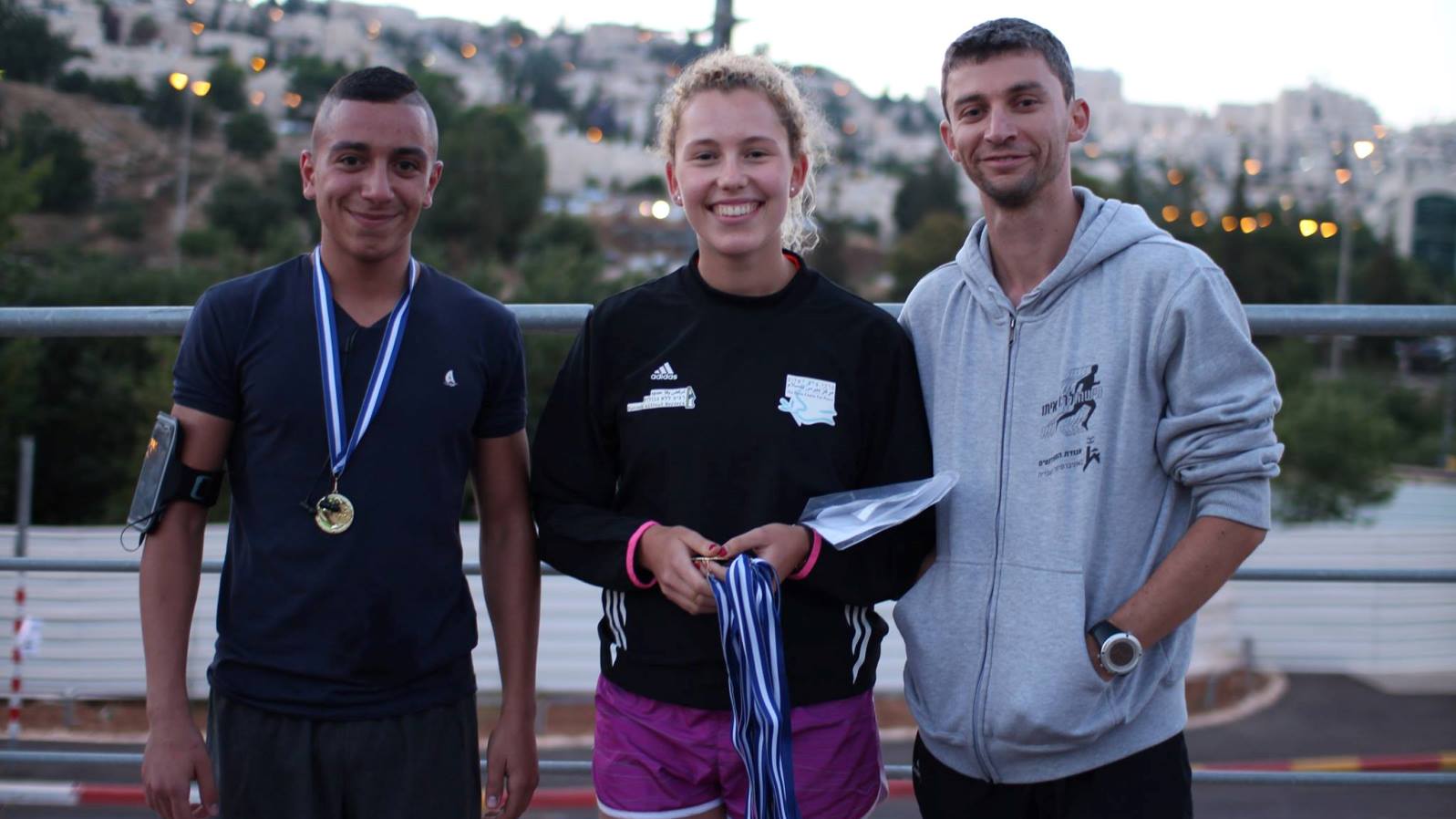
Every November, RWB stages a race open for the general public. “Last time we had 750 participants and we’re hoping for 1,000 in 2018,” says Haas.
Members of the combined boys and girls group (ages 14 to 19) took part in their first overseas marathon in Milan two years ago, followed by races in Berlin and London. “These experiences are very important for the bonding between them. It strengthens their friendships,” says Haas.
RWB has been featured by CNN and some 200 other media outlets in Israel and abroad. The national TV channel of Italy did a special segment on the runners when it had a crew in Jerusalem to film the Giro d’Italia, May 4-6.
One testament to its positive impact is that school principals from the Arab neighborhoods of eastern Jerusalem refer adolescents to the group.
However, a challenge remains in overcoming some Palestinian leaders’ desire to avoid “normalization” with Jewish Israelis. While Arab and Jewish RWB runners have participated every March for four years in the Jerusalem Marathon, only Arab runners have been allowed to register for the Bethlehem Marathon later the same month. Haas is optimistic that this policy will change.
RWB raised its initial budget from a crowdfunding campaign. Today the coed youth team and the men’s and women’s groups are supported by private donations, the Jerusalem Foundation, the municipality and the Foreign Ministry.
“We have about 50 runners from East and West Jerusalem involved in ongoing activity on a weekly basis,” says Haas. He recently launched a separate crowdfunding campaign to give an extra boost of stability to the youth team.
“We just want to create a common zone where Jews and Arabs can get to know each other. If you know each other, you won’t do bad things to each other,” concludes Haas.




